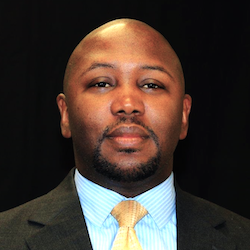
Florida Assisted Living Association.
Staffing and Medicaid reimbursement were two pressing issues for operators that emerged from a recent survey commissioned by the Florida Assisted Living Association, the organization’s CEO, Shaddrick A. Haston, Esq., told McKnight’s Senior Living.
The survey, conducted in February and March by the University of Florida Bureau of Economic and Business Research, “validates some of the things I had been hearing related to problems with staffing, meaning just being able to find qualified workers, and problems with being able to pay those qualified workers,” he said.
Findings in the survey report, titled “Florida Assisted Living Facilities Cost of Providing Care,” are based on online responses from 310 assisted living communities and an additional 214 adults who were interviewed on the telephone.
Researchers learned that in 2018, 72.5% of assisted living communities in the Sunshine State had difficulty finding skilled workers to fill vacancies. “They’re competing with Walmart and Target and all of these other places,” Haston said. “You can goof off half of the day [there], and at the ALF, for all practical purposes, you’re going to be doing some work.”
Operators told researchers that they had raised wages or increased benefits to stay competitive, especially with direct care workers.
“I think we’re probably at the precipice of a staffing crisis, if not already in one, in certain parts of the state,” the CEO said.
The “most important finding,” however, Haston said, “is that there are some facilities in the state of Florida that are grappling with the Medicaid process and long-term care managed care and how that reimbursement is happening.” Denied claims can mean that assisted living communities participating in the Medicaid program can wait two or three months to get paid for care provided, he added.
“That creates problems with staffing, it creates problems with your budget and it creates problems with providing the care and services to the seniors that they need to receive in the community,” Haston said. “The state of Florida and the legislators need to understand that.”
The majority of assisted living communities in the state are private-pay, he said, although some may have long-term residents who became dually eligible for Medicare and Medicaid.
Overall, the researchers found that one-fourth of facilities in the state reduced the number of Medicaid residents they were willing to accept, primarily due to low payments from the program or bureaucracy related to the program.
As for what it will take to solve challenges related to Medicaid, Haston said: “It’s a budget issue, and I don’t know how to get around it. It’s going to be how the state of Florida decides how it will commit to seniors. We see that a lot of facilities, especially smaller ones, are closing because of the challenges, based on the Medicaid issues and reimbursement rates. It’s just becoming difficult when you also factor in the need to have the right employees.”



